
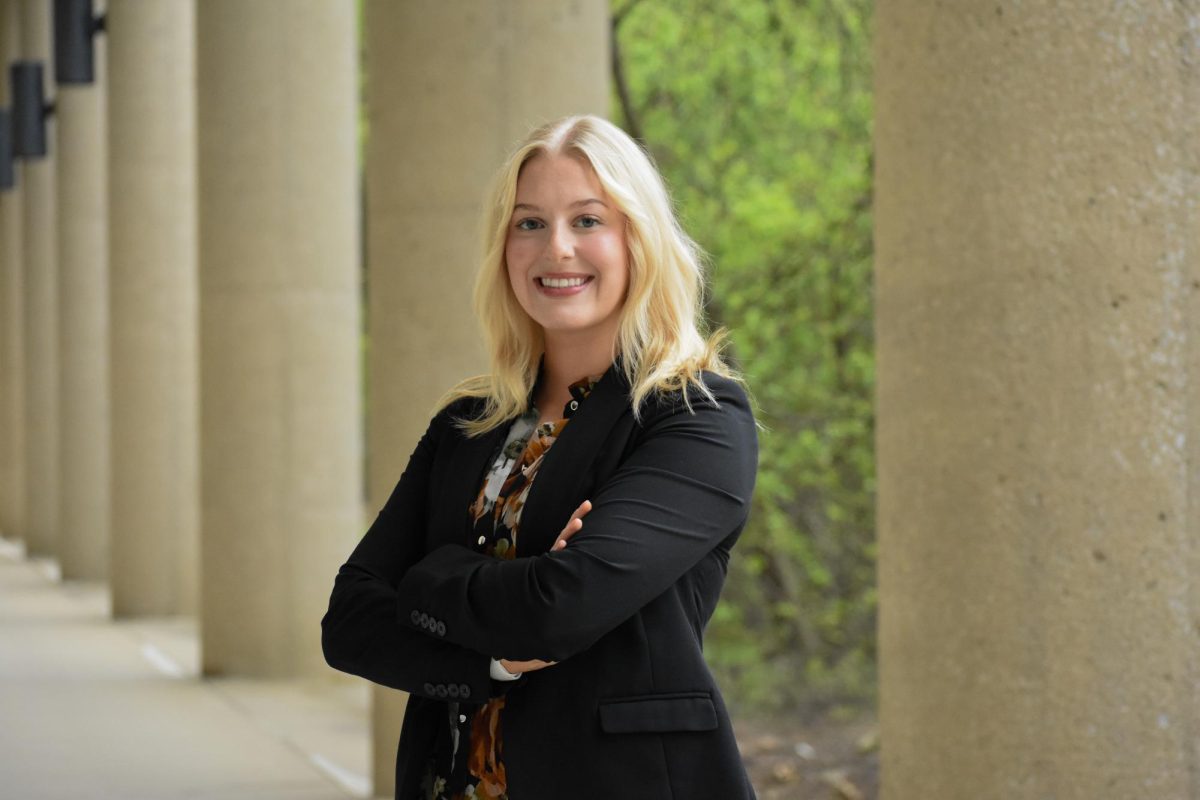
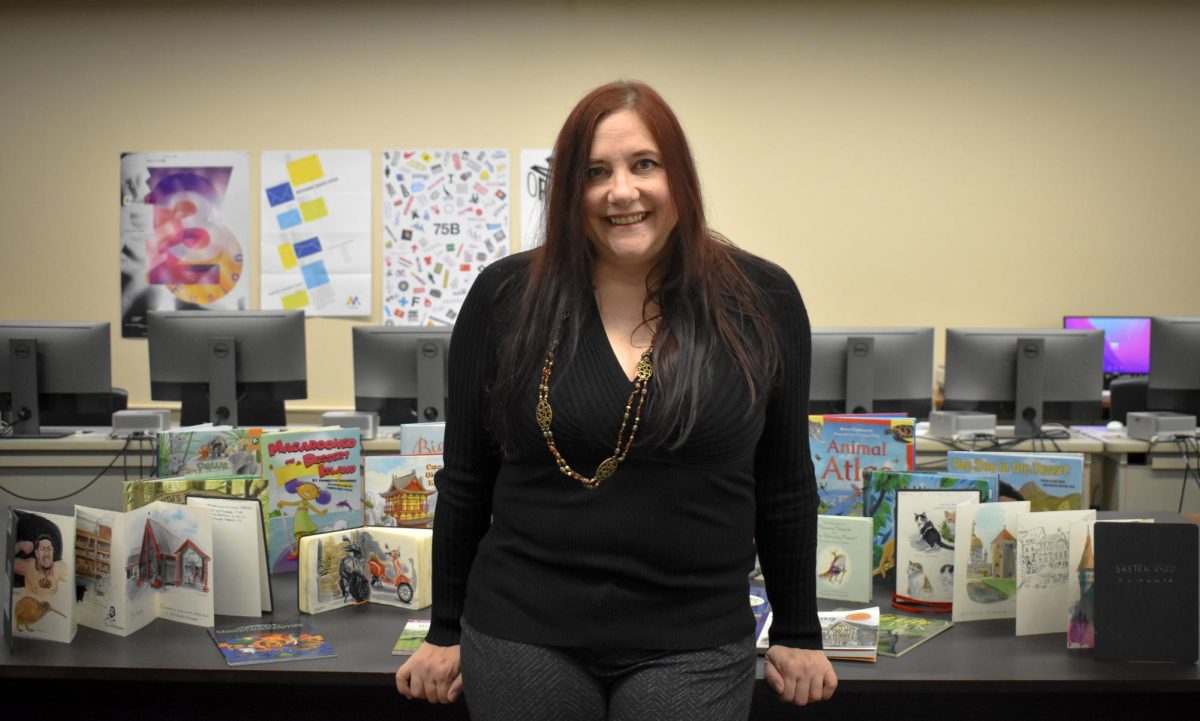
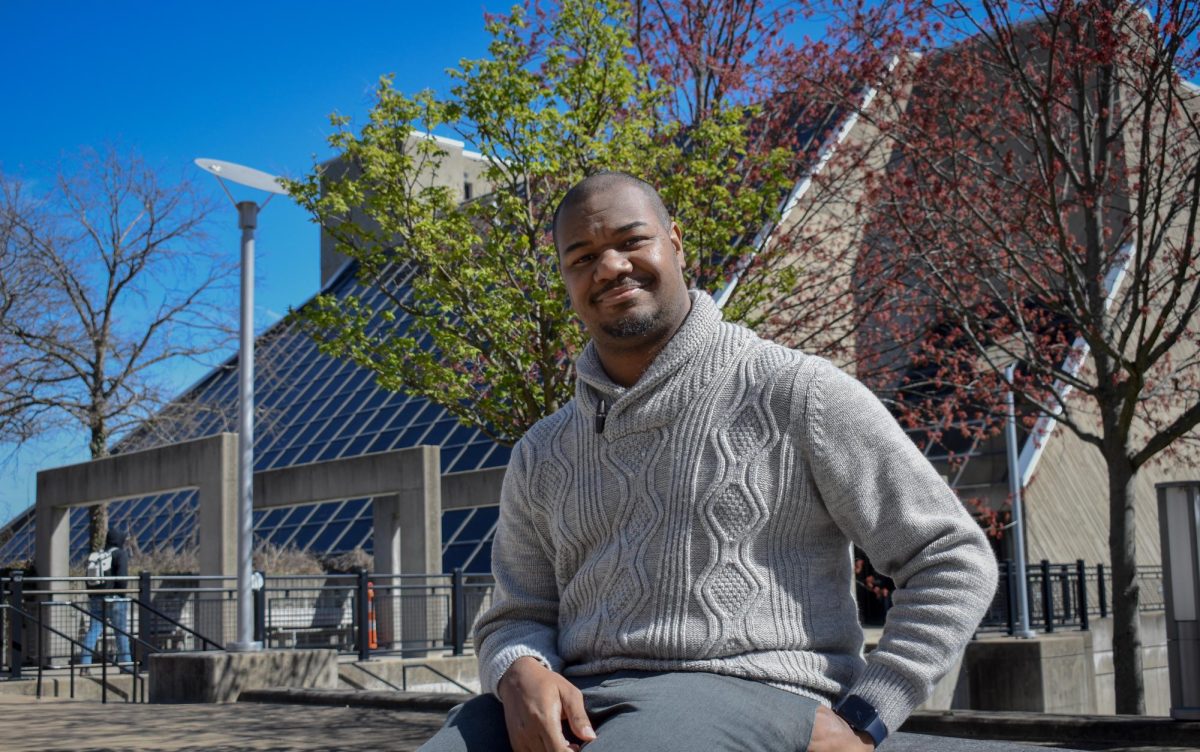
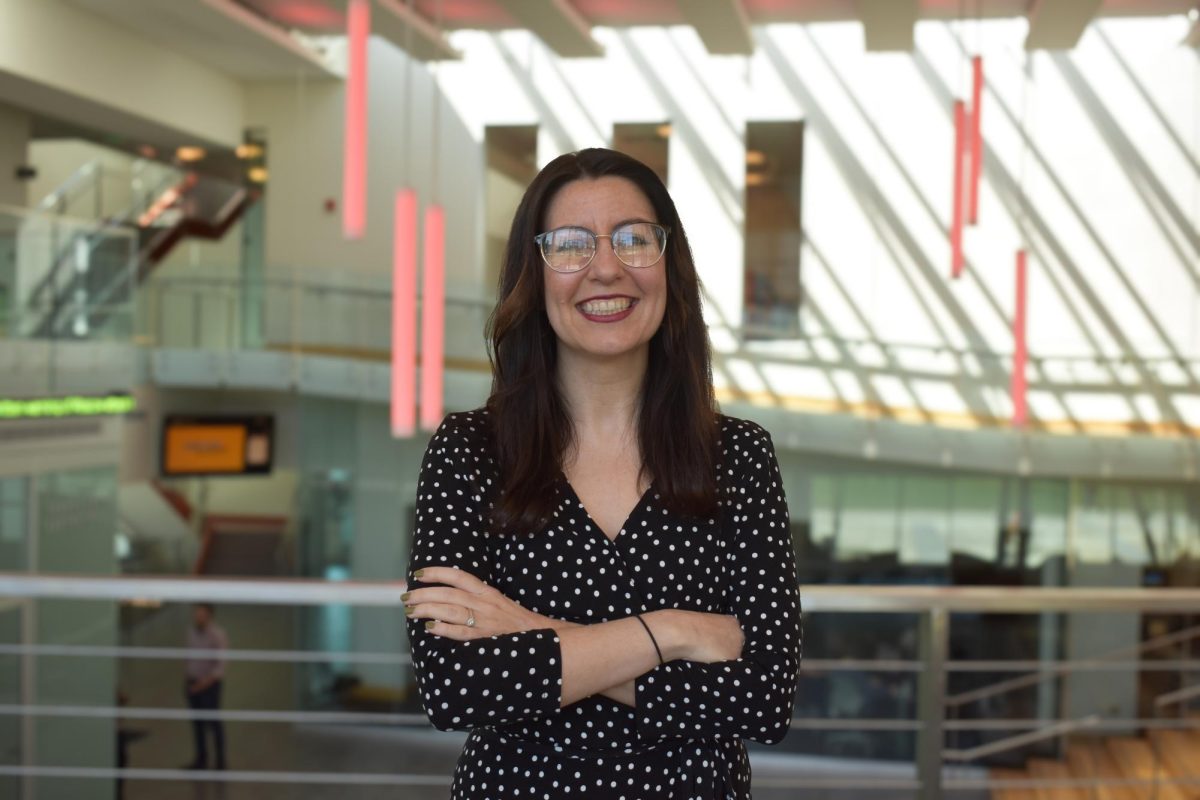
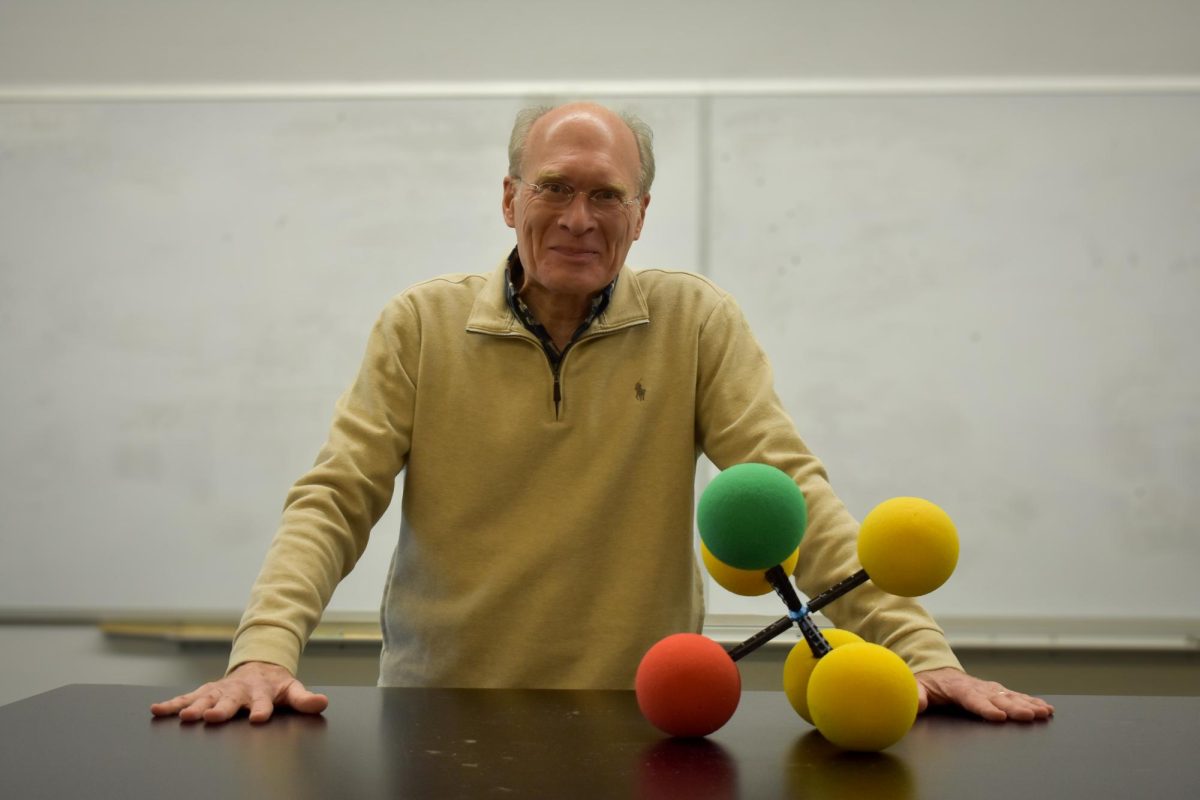
The ever-so-changing landscape of part-time faculty explained
From working in the corporate finance setting, to working as an illustrator or being a well-esteemed published poet, NKU part-time faculty gather the tools and bring knowledge into NKU classrooms of students seeking higher education for their future careers.
The Northerner spoke with five part-time faculty members, which is just a fraction of the almost 500-plus part-time faculty members who are working at NKU and making a difference not only in the classroom, but in their well-established careers helping students take their career goals to the next step.
Part-time faculty numbers
According to NKU’s academic snapshot, in 2022 part-time faculty made up 24.7% out of three other groups of faculty members in the annual report from NKU: full-time faculty, full-time equivalent faculty and tenure/tenured-track faculty.
2022 saw the highest number of part-time faculty at NKU since 2019. One of the colleges with the highest amounts of part-time faculty is the College of Health and Human Services, where 35% of the entire college’s faculty is made up of part-time faculty, totaling up to 226 part-time faculty members within the college alone.
You can find part-time faculty teaching courses in every single college of the seven that NKU has to offer.
Part-time faculty help teach hundreds of students for NKU’s general education course requirements, which require students to take courses in four categories: communication, science & quantitative inquiry, self & society, culture and creativity and global viewpoints. In total, all NKU students can expect to take around 37 hours total of general education courses.
Part-time faculty also assist and bring expert knowledge into upper-level course work at NKU, with some part-time faculty bringing expert knowledge for a particular course in the field that they are teaching.
Since 2022, numbers have remained steady for part-time faculty, though in October 2022 NKU responded to an $18.7 million budget deficit and announced that they’d be cutting into part-time faculty positions to help reduce intuitional costs by $4.1 million.
The opportunities, the challenges and the joy for teaching
Although she graduated from undergrad at NKU just two years ago, part-time faculty member Brooklyn Stephens is now preparing students to go into the workforce of economics and data analytics.
Stephens works full time at Western and Southern Financial Group as an advanced cost control analyst, working in the internal audit department using data analytics and software. She recently obtained her MBA from University of Kentucky less than a year ago, but she’s already back in classrooms at NKU’s Haile College of Business teaching students.
Stephens said that her experience working in a corporate setting has greatly helped, but she’s also had great support from her superiors, even when part-time teaching can become a bit much at some points.
“Sometimes it can be a lot, especially since it is my first time teaching and I want to be good at it. But, I have great support from other professors at NKU,” Stephens said.
She credits colleagues like Dr. Abdullah Al-Bahrani, associate dean for graduate studies and research, along with her student teaching assistant Grace McConn, a senior economics student at NKU.
“Dr. Al-Bahrani has really supported me through the process of teaching for the first time. He serves as my sounding board, I’ll ask him a lot of questions and I just feel very supported. I also have a teaching assistant, Grace McConn, and she’s helped me so much,” Stephens said.
Stephens said that support from colleagues, as well as just having a passion for the subject helps keep her going.
“I think it’s just the combination of having faculty to support me and help me through the process, and then also being really passionate about it. I never dread the work—I always look forward to it because it is rewarding and fun,” Stephens said.
Other professors like James O’Bannon, a professor of English who also teaches at Cincinnati State and Technical College and University of Cincinnati Clermont, said in general, support for part-time faculty across all universities could be better.
“I will say things could be better. Obviously, colleges have gone in the direction of part-time faculty and it saves them money, but a lot of time it puts a lot of work on part-time faculty to teach five to six to seven classes a semester. I will say it’s getting better,” O’Bannon said. “I think people have started to understand the amount of work that part-time faculty put in, and they are making strides to adjust in some areas.”
Faculty Senate President John Farrar said one of the other issues that NKU part-time faculty are experiencing is pay.
“At the pay rate that we are paying, it would be very difficult for [part-time faculty teaching] to be your job,” Farrar said. “I think that has to be a priority for us actually is overall compensation at NKU, but I think one of the reasons why we get away with it is that most faculty don’t know how much part-time faculty are being paid, how little. I think they’d be surprised at how little that not very much is.”
Farrar added that some part-time faculty don’t even teach for the money.
“They are definitely not teaching part-time for us for the money,” Farrar said. They are teaching part-time for us because they are good at it, interested in it and want to work with students,” Farrar said.
Farrar hopes that along with better pay, there will also be internal motivations for part-time faculty.
“There’s got to be some other internal motivation, in my opinion, and then the external motivation of pay, because the pay is just not there. Not for the amount of work they put in,” Farrar said.
In the communication studies department inside the College of Informatics’ School of Media & Communication, school director Stephen Youngbluth said that part-time faculty make up a large majority of the instructors teaching courses like public speaking (CMST 101) and introduction to communication studies (CMST 110).
For all NKU students, taking CMST 101, CMST 110 or creative expression (TAR 111) is required for graduation. However, according to Yungbluth, TAR 111 isn’t as readily available as the introductory communication courses, thus causing high course enrollment numbers and a need for many part-time faculty to teach the courses.
But to help the many part-time faculty members get acquainted, Yungbluth discussed the wide range of resources available, like Jeff Fox, who serves as the coordinator of public speaking among other roles in the School of Media & Communication.
“In these roles, it was his responsibility and job to make sure that everybody was aware of the latest updates to the textbook, new technology and new possible assignments that people are finding effective,” Yungbluth said.
Along with the academic support Fox provides, he also coordinates a professional development day specifically for part-time faculty.
“You could call it a full day retreat, because it starts in the morning, includes lunch and continues into the afternoon. It doesn’t go late into the afternoon, but we’ve got a professional development day,” Yungbluth said.
Other things that Yungbluth considers when assisting part-time faculty include meeting with them to discuss their challenges.
“We also make sure that we review all of our part-time faculty and make sure that they are not having any struggles, and if we do identify struggles to talk with them about how to address them better,” Yungbluth said.
Yungbluth added that part-time faculty have access to a Canvas shell of another instructor who has taught the course in a previous semester for inspiration to help part-time instructors create their own course materials, syllabi and help them save time on additional tasks that can be time consuming for instructors who don’t receive the most desired pay.
“We would give them access to a Canvas shell of someone who’s taught the course before so that way they don’t have to reinvent the wheel and come up with all these materials by themselves,” Yungbluth said. “That would take a lot of extra work, and we don’t pay our part-time faculty nearly as much as we would like to be able to pay them to do that type of work.”
However, despite the pay, Yungbluth said that his department still has eager part-time faculty who are ready to not only teach students, but also to learn with them.
“We’ve got a great group of people who are interested and willing to [be an instructor],” Yungbluth said. “We have people who want to continue to teach and they are eager to learn.”
Chemistry part-time faculty member Richard Bloss said some of the other challenges he faced as a part-time faculty member included time management, especially when he was working full time in information security.
“It was a constant challenge for me to do time management, to get the lectures prepared and to get the exams and assignments graded. It was a nonstop challenge for time management, but the rewards made up for that,” Bloss said.
Some of the rewarding aspects of teaching that he mentioned included helping students overcome challenging hurdles while learning chemistry.
“The joy of seeing someone or hearing someone say ‘yeah, this was hard for me but I finally get it’ is very rewarding. Just to have an opportunity to have those moments and maybe make a difference for somebody on the way to getting their career—that’s what does it for me,” Bloss said.
Bloss also discussed anecdotes of the department heads throughout his 40 years teaching at NKU and their consistent support.
“I have worked under five different department heads in NKU’s chemistry department, but those five department heads consistently supported me and made me feel welcome. I’ll never forget that,” Bloss said.
In addition to supportive department heads, Bloss also credits other full-time colleagues. One in particular that he named was Robert (Bob) Kempton, a previous chemistry professor.
On a cold December day during finals week back in 1985 in a faculty break room, Bloss called his wife to see how she was doing as she quickly went into labor. Kempton overheard the conversation between Bloss and his wife and immediately stepped in for assistance.
“He overheard the conversation and volunteered to proctor my exam so that I could run home that night and get [my wife] to the hospital. Only requirement would be that he would expect me to name the son Bob if it was a son, but he wouldn’t force me to name a girl, so I always, always remember that,” Bloss said.
What’s next for NKU and part-time faculty?
Farrar said that it’s hard to tell what the future may look like for part-time faculty given the amount they are paid.
“It’s hard to tell,” Farrar said. “I think one of the issues with part-time faculty is we don’t pay them very much and I think that unfortunately means we can get away with teaching the classes less expensively by using part-time faculty.”
In regards to future trends, Farrar said that he thinks numbers may grow with part-time faculty, along with other groups that make up NKU faculty, including non-tenure track faculty who perform full-time duties but are classified as a lecturer. Non-tenure track renewable, also known as temporary, refers to faculty that can be renewed by a yearly basis after a performance review.
“As a trend, I don’t know that it’s going to go up really rapidly. I think it’s going to grow and I’m anticipating that our non-tenure track renewable and non-tenure track temporary, particularly renewable will increase in the future too,” Farrar said.
He also said that future part-time faculty may be able to teach specialty courses that require more expertise, as well utilizing part-time faculty to fill gaps of tenured faculty.
“Part-time faculty help fill in some of the gaps for your full-time, particularly tenured and tenure track faculty.”

